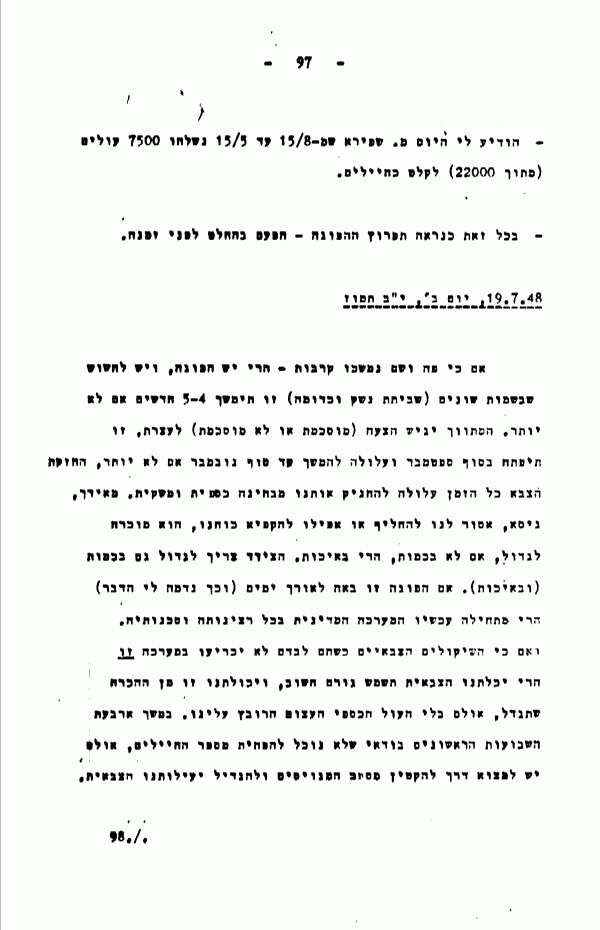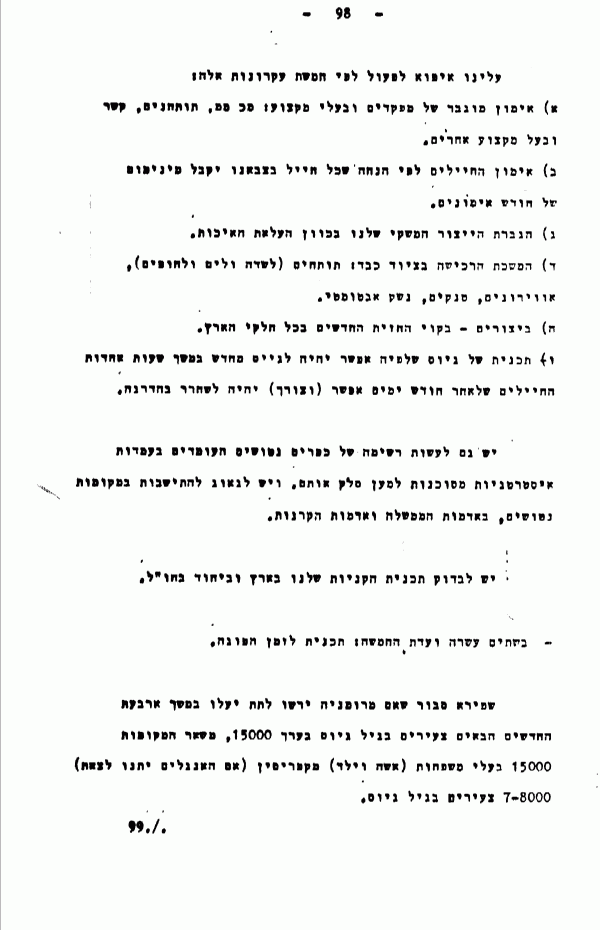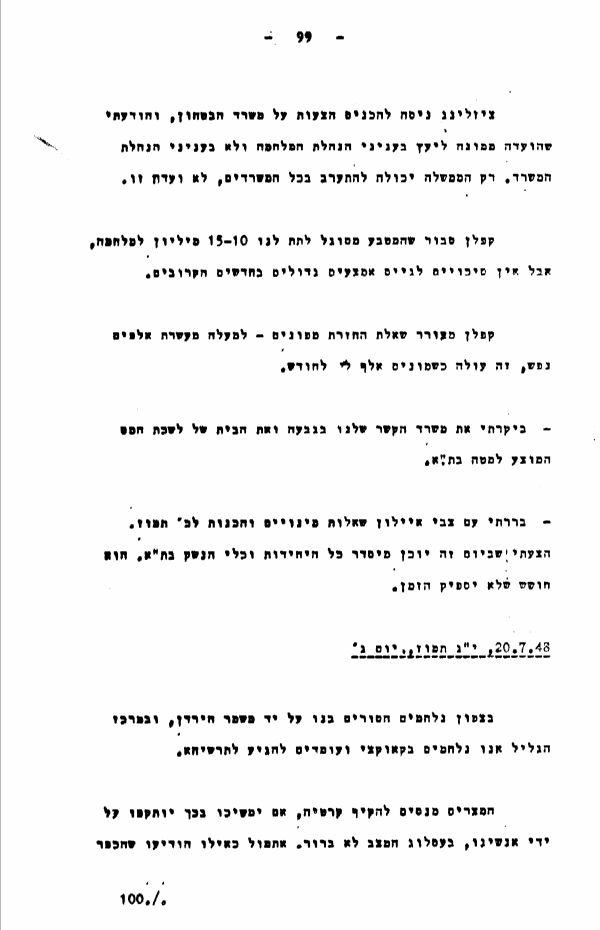1
of
Places:
Romania
Ramat Gan
People:
The use of the photograph is subject to the Copyright Law, 2007
18.07.1948
225421
Monday, July 19, 1948 Although clashes continue here and there – there is a truce, and there’s cause for concern that, under various names (armistice and the like), it will continue for 4-5 months, if not longer. The mediator will submit a proposal (agreed-upon or not agreed upon) to the [UN General] Assembly, which will open in late September and could continue until late November, if not longer. The army’s upkeep throughout this time could suffocate us financially and economically. On the other hand, we mustn’t weaken or even freeze our power; it must increase. If not quantitatively, then qualitatively. The equipment also has to increase quantitatively (and qualitatively). If this truce is going to be long lasting (and that’s what it seems to me) then the diplomatic campaign with all its intensity and risks starts now. And while military considerations alone will not decide this campaign – our military ability will be an important factor, and this ability must necessarily increase, but without the huge financial burden hanging over us. For the first four weeks we certainly won’t be able to reduce the number of soldiers, but we must find a way to reduce the number of conscripts and increase our military efficiency. We must, therefore, operate on the basis of these five-six principles: A) Increased training of commanders and specialists: squad commanders, platoon commanders, artillerymen, signal and other specialists. B) Training of soldiers, on the assumption that every soldier in our army receives a month’s training at a minimum. C) Increased weapons production with a view to improving quality. D) Continued procurement of heavy equipment: cannons (field, naval, coastal), airplanes, tanks, automatic weapons. E) Fortifications – along the new frontlines [areas that were conquered] throughout the country. F) A conscription plan, whereby it will be possible, within a few hours, to again call up those soldiers who can (and should) gradually be released after a month. [We] also need to make a list of abandoned villages located at dangerous strategic positions, in order to eliminate them, and [we] need to ensure the settlement of abandoned locations, on government lands and lands of the funds [KKL and Keren HaYesod]. Need to check our plan for procurements in the country, and especially abroad. At twelve the Committee of Five: A plan for the truce period. [From the Committee deliberations:] Moshe Shapira thinks that if Romania allows [Jews to leave], about 15,000 young draft-age [men] will arrive over the next four months. From elsewhere 15,000 heads of families (a wife and a child). From Cyprus (if the English allow [them to] exit) 5,000-7,000 young draft-age [men]. [Aharon] Zisling tried to introduce proposals regarding the Ministry of Defense. I stated that the committee was appointed to advise on the conduct of the war, not the Ministry’s administration. Only the government can intervene in all the ministries, not this committee. [Eliezer] Kaplan believes that the currency [the Israeli currency that the government and Bank Leumi were preparing to introduce] can provide us with 10-15 million for the war, but there’s no chance of raising substantial means in the next few months. Kaplan raises the question of return of those evacuated [from outlying neighborhoods in cities, and particularly – from settlements that were evacuated] – more than 10,000 people. Their upkeep costs about P£ 80,000 per month. – I visited our signals office on the Hill [in Ramat Gan] and the tax bureau building [on Esther HaMalka Street] that has been proposed as the Staff headquarters in Tel Aviv. – I discussed questions of appointments and preparations for the 20th of Tammuz [July 27[ with Zvi Ayalon. I suggested that a roll call of all the units and weapons in Tel Aviv be held on that day. He’s worried that there isn’t enough time [about a week].











